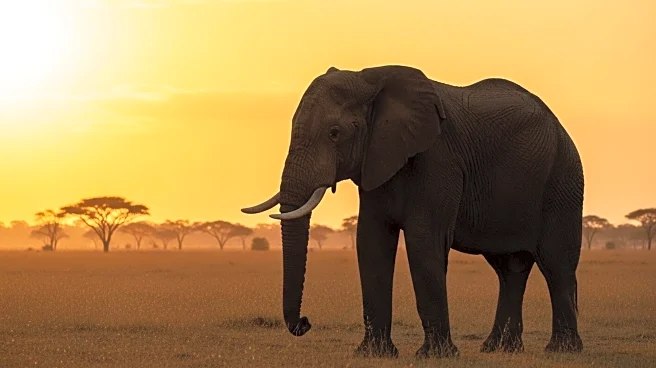What is the story about?
What's Happening?
The government of Chad has withdrawn a mandate from African Parks, a nonprofit conservation group associated with Prince Harry, to manage its wildlife reserves. The decision was made due to accusations that the charity has not effectively curbed poaching activities. Environment Minister Hassan Bakhit Djamous cited a 'recurring indelicate and disrespectful attitude' from African Parks towards the government, alongside a resurgence in poaching and insufficient investment in the reserves. This move ends a 15-year partnership aimed at anti-poaching efforts and elephant population restoration at the Ennedi Natural and Cultural Reserve and the Greater Zakouma Ecosystem. African Parks has expressed its intent to engage in discussions with the government to understand its position and explore ways to continue conservation efforts.
Why It's Important?
The revocation of the mandate from African Parks highlights significant challenges in wildlife conservation efforts in Chad. The decision could impact the protection of critical landscapes and wildlife populations, including elephants, which have seen growth under African Parks' management. The situation underscores the complexities faced by conservation groups operating in regions with political and economic instability. The withdrawal may affect international perceptions of Chad's commitment to conservation and could influence future collaborations with other organizations. The involvement of Prince Harry adds a layer of public interest and scrutiny, potentially affecting the charity's reputation and its ability to secure future partnerships.
What's Next?
African Parks is currently in talks with the Chadian government to better understand the reasons behind the mandate withdrawal and to explore potential paths forward. The organization aims to continue its conservation efforts in the region, which may involve renegotiating terms or seeking alternative partnerships. The outcome of these discussions could set a precedent for how conservation groups engage with governments in politically sensitive areas. Stakeholders, including international conservation bodies and donors, will likely monitor the situation closely, as it may influence funding and support for similar initiatives in other regions.
Beyond the Headlines
The situation raises broader questions about the role of international conservation groups in managing wildlife reserves in developing countries. Ethical considerations regarding the treatment of local communities and the balance of power between governments and NGOs are critical. The incident in the Republic of Congo, where guards committed human rights abuses, highlights the need for accountability and transparency in conservation efforts. Long-term, this could lead to shifts in how conservation projects are structured, emphasizing more collaborative approaches with local governments and communities.














